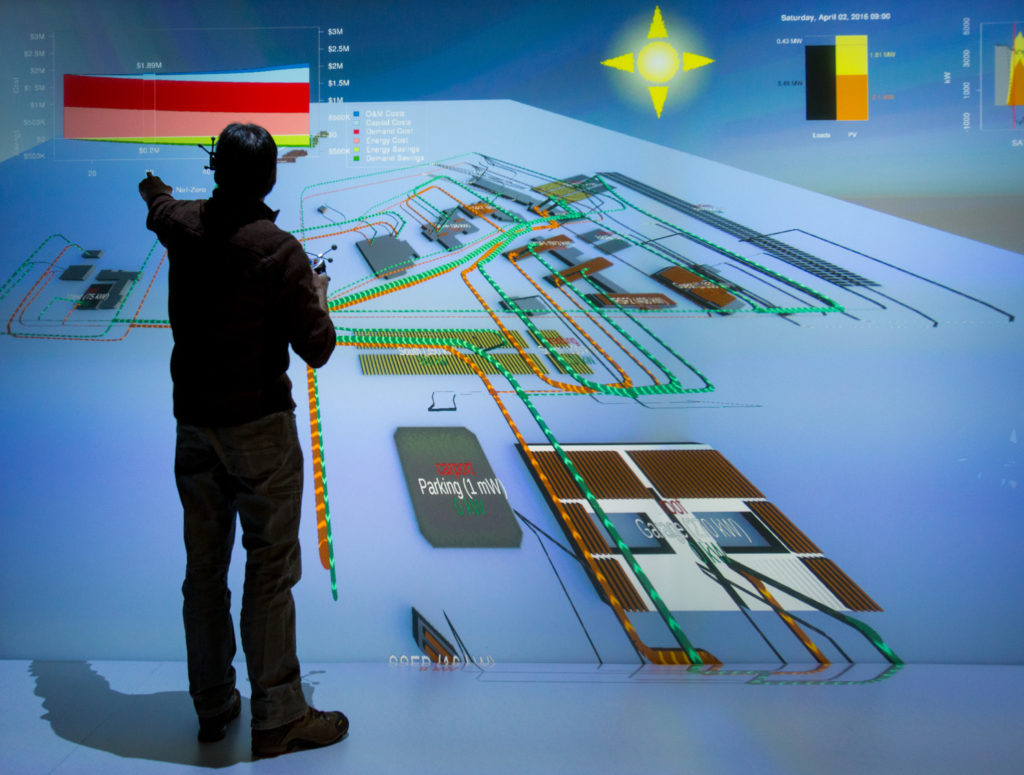Cities across the U.S. are ambitiously transitioning to 100% renewable energy, swapping fossil fuel-based energy systems for clean energy strategies and sustainable plans. Six cities in the U.S. have already made this switch, and cities from D.C. to San Jose are developing plans and implementing strategies to turn their clean energy ambitions into reality. These cities are relying on data to develop clean energy strategies that are realistic, targeted and specific. But finding that data — let alone managing and analyzing it — requires time, money and expertise that cities often don’t have.
Back in November, the Institute for Sustainable Communities (ISC) gathered a group of a dozen cities and regions working to advance ambitious renewable energy goals for a Clean Energy Cities Sustainable Communities Leadership Academy. At that workshop, we heard clearly that cities needed more help accessing, analyzing and utilizing data to drive decisions, inform plans and prioritize strategies.

Our national labs are an incredible resource, offering extensive expertise and state-of-the-art tools to help cities with exactly those challenges. That’s why this month ISC partnered with the National Renewable Energy Laboratory (NREL) to offer cities an intensive workshop focused on energy data, planning and decision-support tools.
Cities left better equipped to chart their path to 100% renewable energy, fill gaps in energy data and make data-driven decisions for their city and region. The participants also had the opportunity to provide valuable feedback that will shape upcoming NREL work and optimize new and future NREL data tools.
The workshop exposed participants to a number of new tools — and new functions in familiar tools — that are openly available for all cities to use, including:
- The System Advisor Model (SAM), which helps cities explore the potential for different projects, answering questions like, “how much energy could we produce if we put solar on city hall, and what would it cost?”
- ReOpt, a tool that helps cities optimize the use of renewable energy and storage and find the most cost-effective solutions for a particular project or across numerous sites in the community.
- BeOPT and RESSTOCK, tools that are used for energy efficiency and tracking energy usage in buildings.
- State and Local Energy Data (SLED), a comprehensive energy profile tool that uses energy data to help cities plan and implement clean energy projects, answering questions like, “what is the renewable energy resource potential for our city?” or “which sector produces the most greenhouse gas emissions?”
The participants also had a chance to step into the future of energy planning in NREL’s 3D collaboration room — a tool that lets users add solar panels and batteries or play with the size and orientation of a wind turbine with the wave of their hand, all while watching the effects on energy distribution across the community.
This workshop provided a forum for cities to plug into NREL’s resources and connect with the experts behind them, and an opportunity for NREL experts to hear how their work was serving — or could better serve — cities. With the support of ISC, NREL and their peers, these cities are better prepared to put their ambitious energy goals into action, and are able to take full advantage of their data using the resources and state-of-the-art tools at their disposal.
Photo: April 4, 2017 – NREL senior scientist Kenny Gruchalla shows workshop attendees some of the features of the the 3-D Collaboration Room in the Energy Systems Integration Facility (ESIF) at the National Renewable Energy Laboratory (NREL) in Golden, Colorado. The two-day workshop, “Turning Energy Data into Action – Advancing Your Clean Energy Strategy,” was hosted by the Institute for Sustainable Communities and NREL. Participants included representatives from several U.S. cities, discussing data-driven decisions for getting to higher penetrations of renewables. (Photo by Werner Slocum / NREL)
